Event Recap: Transit Retreat 2025, Des Moines, IA
By Shared-Use Mobility Center
Jul 15, 2025
Introduction
On June 25 and 26, 2025, the Shared-Use Mobility Center (SUMC) participated in the 4th edition of the Transit Retreat in Des Moines, IA, organized by the Northwest Pennsylvania Mobility Alliance (NPMA). These Retreats are expressly and deliberately different from standard transit conferences, with sessions designed around conversations rather than static presentations. Attendance is strategically limited to ensure a small group atmosphere that is relaxed and conducive for one-on-one connections. Each edition of the Retreat brings together transit agencies, mobility managers, state departments of transportation, Federal Transit Administration (FTA) technical assistance centers, and a limited number of vendors to share resources, solutions, and conversations focused on small urban and rural transit.
Alvaro Villagran, Director of Federal Programs, represented SUMC at the 2025 edition of the Transit Retreat, building on SUMC’s participation in the First Transit Retreat (2022, Erie, PA) and the Second Transit Retreat (2023, Myrtle Beach, SC).
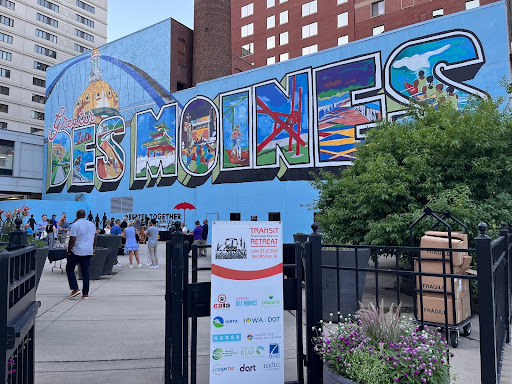
Presentations
SUMC presented at two sessions and an expo table during the 2025 Transit Retreat.
First, SUMC joined a panel of peer organizations at the Get to know your FTA Technical Assistance Center session, also featuring: Maurice Beard from the Transit Workforce Center, Jeremy Johnson-Miller from the National Aging & Disability Transportation Center, Enjoli Dixon from the National Rural Technical Assistance Program, and Bill Wagner from the Coordinating Council on Access and Mobility (CCAM) Technical Assistance Center. Laura Mallonee from the North American Bikeshare and Scootershare Association (NABSA) completed the panel.
In his brief presentation, Alvaro summarized SUMC’s almost decade long work supporting the FTA’s mobility innovation program, shared key elements included in SUMC’s Guidebook for Mobility Innovation that can help small urban and rural transit agencies develop projects, adopt innovative technologies, and explore new partnerships, and highlighted the many resources and case studies available through the Mobility Learning Center.
During the panel conversation, many people from the audience asked questions about funding sources for mobility projects. Besides discussing some of the more common funding sources supporting rural and small urban transportation services, Alvaro encouraged people to look beyond transportation funding programs and to explore funding opportunities from other sectors and agencies that support transportation services. A helpful starting place to identify funding is multi agency CCAM Program Inventory, which in its latest update identified 132 federal programs that may provide funding for human services transportation for people with disabilities, older adults, and/or individuals of low income. Alvaro also pointed out that some agencies are exploring ways to access funding from the National Opioid Settlement in their state to support transportation services for communities and individuals in recovery, and provided the case of the Cecil County COMPASS program as an example of a service model to serve the needs of this population.
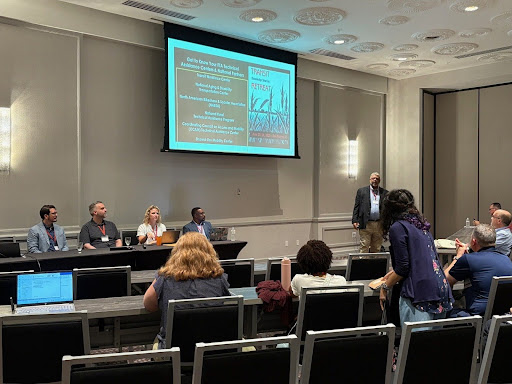
Later in the day, Alvaro joined the Micromobility in Rural and Small Urban Communities session, for a knowledge sharing and conversation with Laura Mallonee from the North American Bikeshare and Scootershare Association (NABSA), Logan Spackman (ROAM Share), and Jeremy Lewis (Des Moines Streets Collective).
Highlights from the speakers’ presentations included: celebrating the work of the longest continuous operating bike share system in the US (Des Moines!) and how it has expanded its station-based system (including into parks) and has integrated e-bikes to its fleet; learning about ROAM’s programs from an urban bike share program connecting to transit and activities, to serving the world’s most rural bike share station at the Cowboy Trail; and NABSA’s report of the state of micromobility showing increasing ridership trends in North America.
SUMC’s presentation focused on sharing the experience of small urban bike share programs that expand mobility options and infrastructure (Redding, CA), that integrate bike share and public transit (Meadville, PA), and that accommodate micromobility infrastructure as part of mobility hubs (Albany, NY). Additionally, Alvaro highlighted a few SUMC research projects that studied the impacts of bike giveaways programs, bike share service in urban neighborhoods, and micromobility in local climate strategies (See SUMC publications).
Some of the key questions discussed during the conversations with the audience related to the state of funding sources that can support the development, operations and maintenance of bike share programs in small urban and rural communities. Micromobility services, like public transit, experience challenges in securing reliable and sustainable funding, especially to support their operational costs. In many cases, local sources of funding (whether from public, private, or philanthropic sources) are critical to support mobility programs. The session also emphasized the essential role of (county and regional) mobility managers in pursuing opportunities to support transit, paratransit, non-emergency medical transportation, micromobility, and local volunteer drivers’ programs.
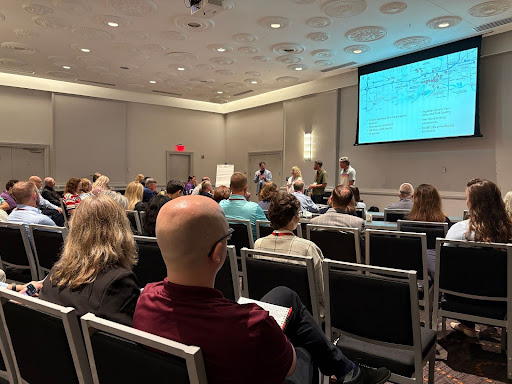
Other Retreat sessions presented successful practices from mobility managers in Kansas and Iowa supporting local transportation, housing, and food access programs, provided guidance on the transition to low and no emissions fuels for transit service, and promoted kindness in the workplace and communities. All presentations from the 2025 Transit Retreat sessions are now available online.
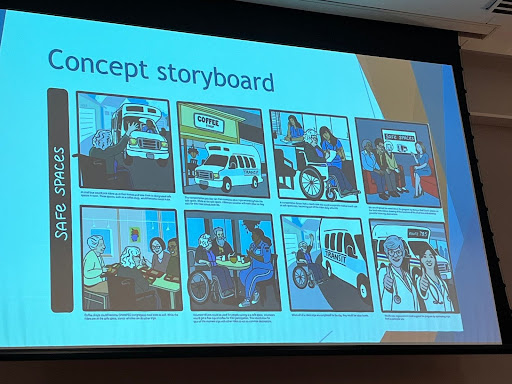
SUMC also hosted an expo table at the Transit Retreat. During breakouts, attendees learned about SUMC’s work in general, about SUMC’s capacity building work with 5 communities across the country through the USDOT Thriving Communities Program, and about a practical guidebook for Establishing a Transportation-Focused Community Advisory Board.
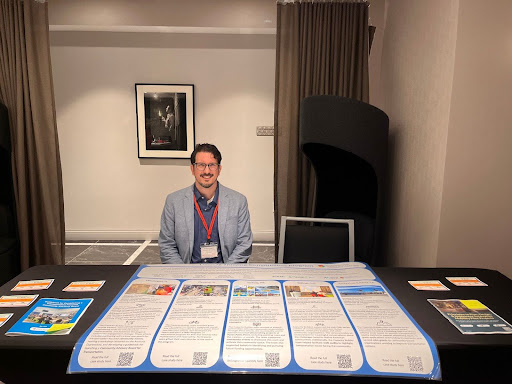
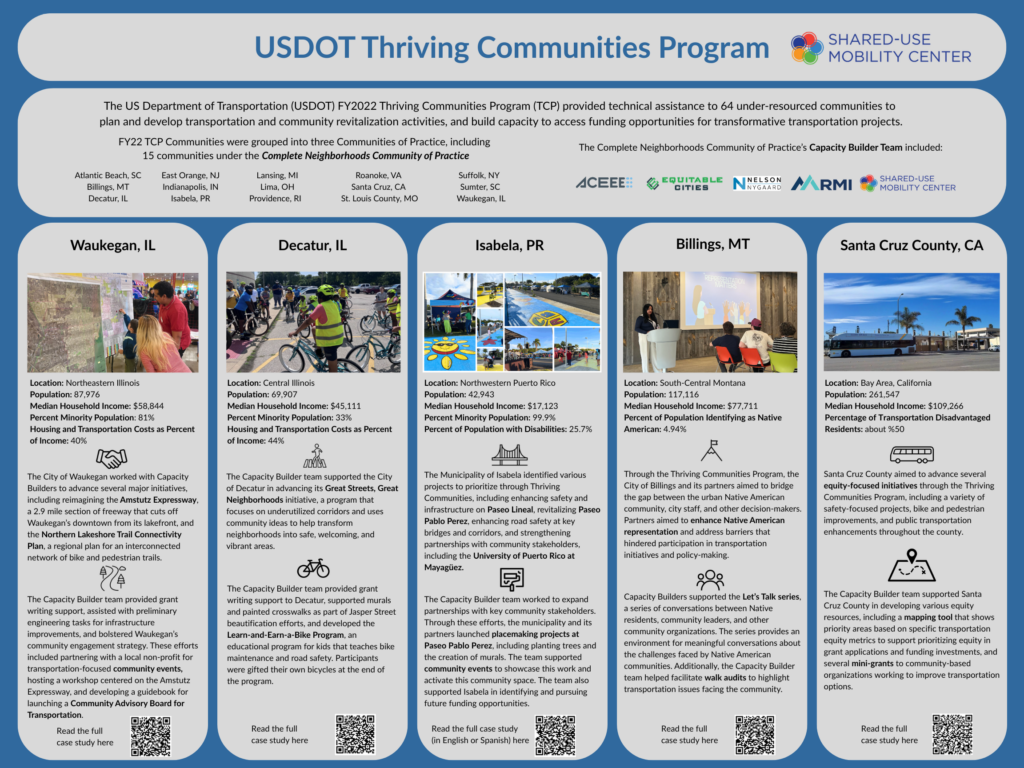
Networking
The Transit Retreat also provided opportunities for networking and informal conversations during breaks, lunch and evening receptions. The Transit Retreat purposely limits the number of attendees and vendors participating in the event aiming to promote deeper conversations.
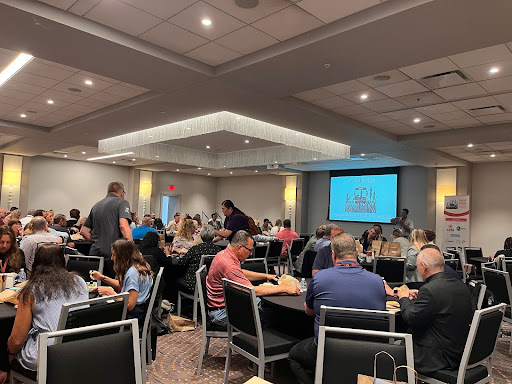
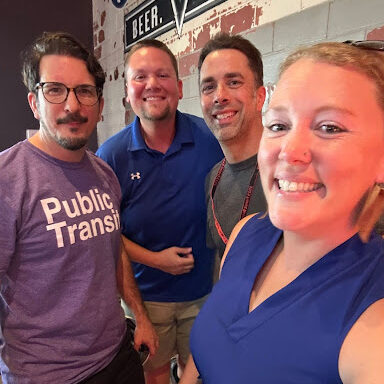
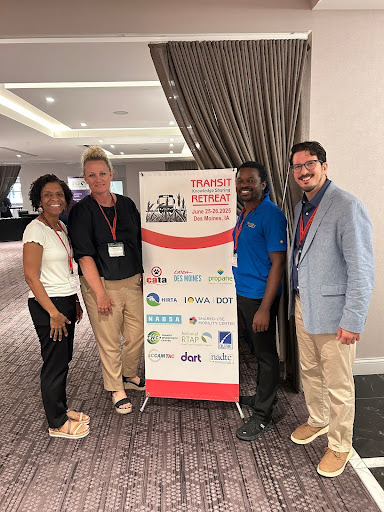
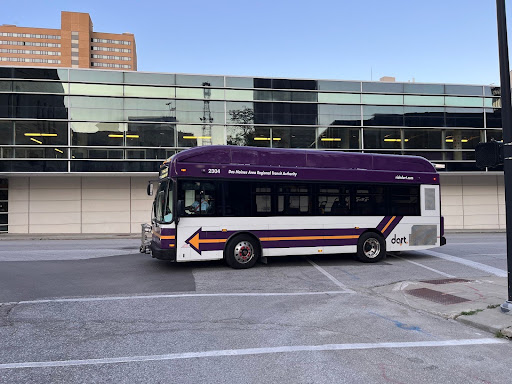
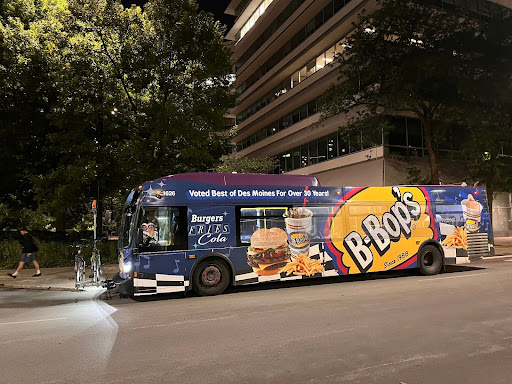
Conclusion
Knowledge-sharing is essential to move the mobility industry forward. Forums where industry experts can interact and discuss mobility challenges and solutions are key capacity building tools for the public, private, and nonprofit sectors. The Transit Retreat presents such a forum, focusing on the interpersonal connections and lessons learned from on-the-ground experiences.
At the end of the event, organizers announced that the next edition of the Transit Retreat will be hosted in Mobile, AL on March 4-5, 2026.